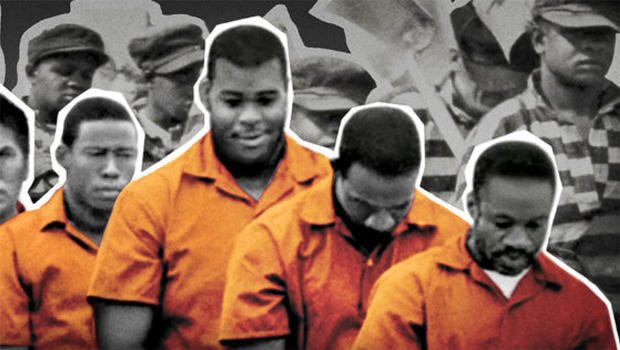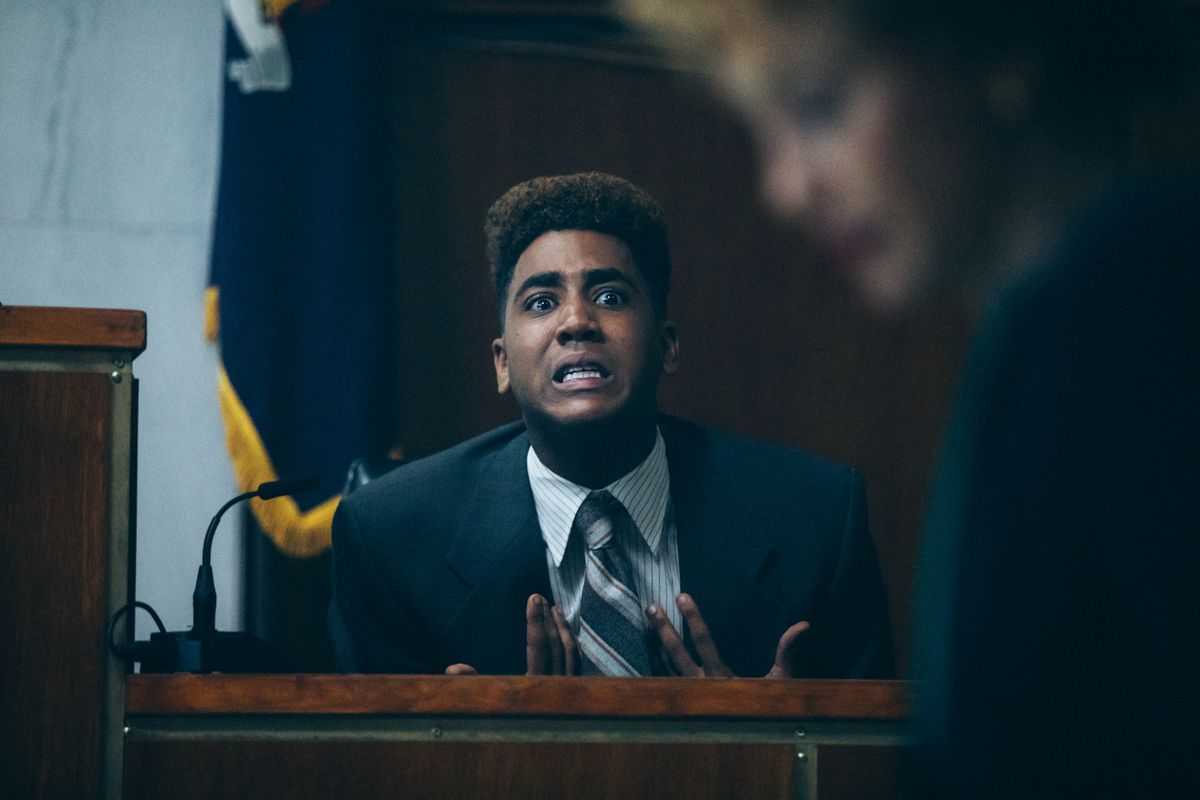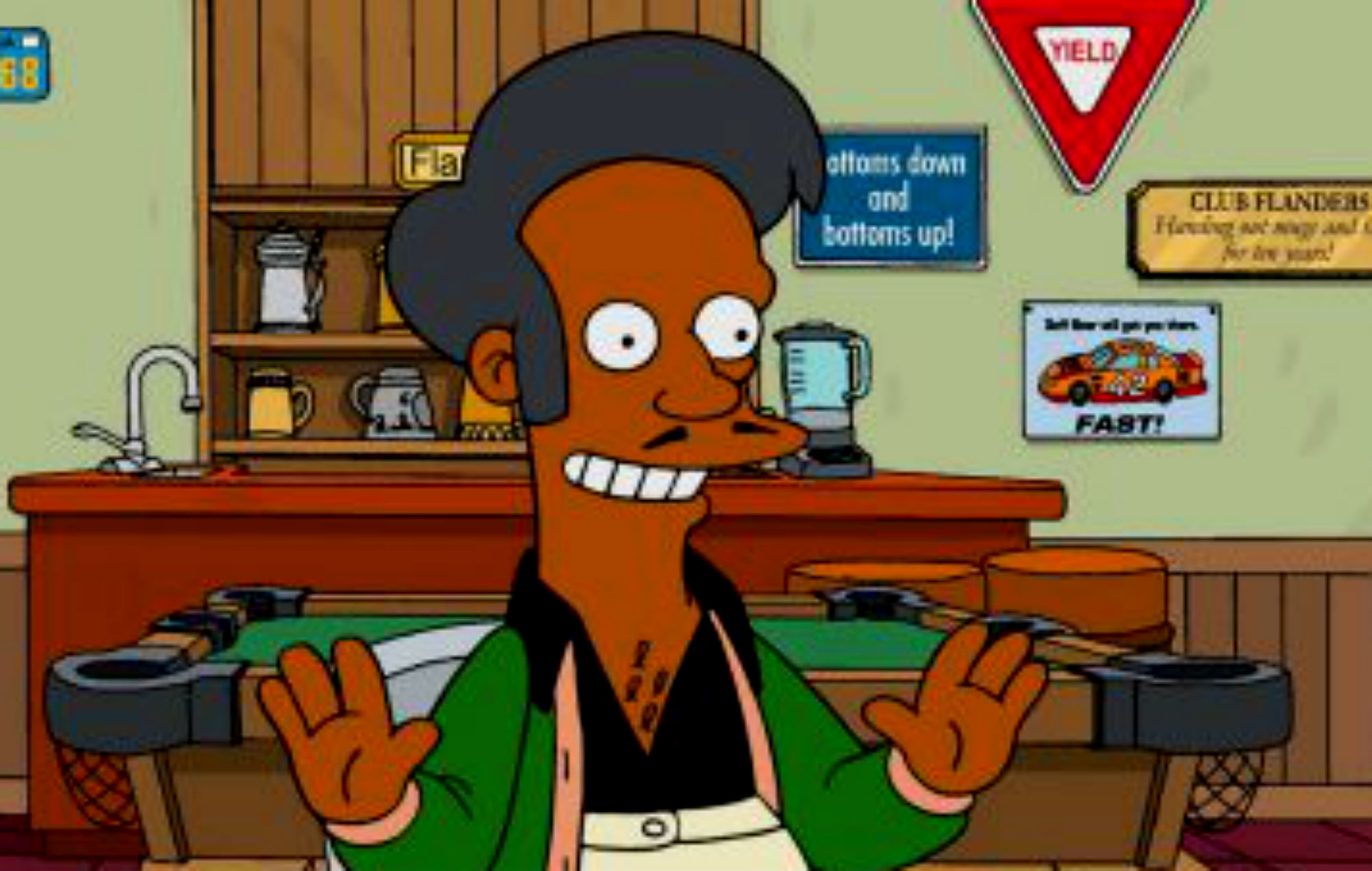The Black Lives Matter Protests: How the Video Business Is Responding
From reality shows that glorify police brutality, to movie classics that perpetuate harmful stereotypes, how the major SVOD services and TV networks are rising to the challenge of better curating their program libraries

The smarter way to stay on top of the streaming and OTT industry. Sign up below.
You are now subscribed
Your newsletter sign-up was successful
Since the tragic death of George Floyd while in Minneapolis police custody on May 25, 2020, tens of thousands of people in the United States and around the world have gathered to protest police brutality and systemic racism.
From public statues to decade-old tweets, the sudden awaking of the broader culture to intractable racial issues is putting a lot things under scrutiny. This includes the programming and program libraries of the major streaming services and TV networks, which typically have operated under a the-deeper-the-better conventional wisdom, but now constitute a level of liability in some cases.
SVOD platforms have overhauled their content libraries to better boost Black creators’ work and make educational documentaries and shows more easily accessible to consumers. Networks have taken a closer look at their linear programming, canceling shows that no longer have a place on their schedules, purging episodes with offending content, and making significant changes to forthcoming seasons.

Curation is Key
The biggest streaming company of them all, Netflix, has curated a special “Black Lives Matter” subsection of its service, curating more than 40 titles to encourage users to “learn more about racial injustice and the Black experience in America.”
The featured collection, showcased in this YouTube video, is proving how impactful a front-and-center collection can be on subscriber viewing habits. Emmy-winning director and writer Ava DuVernay’s miniseries When They See Us, about five young Black and Latino men falsely accused of assault and rape, jumped 83% in the proprietary blended metric used by Parrot Analytics to measure audience demand.
Another DuVernay documentary, focused on the disproportionate number of Black people incarcerated in America, 13th, has had a 4,665% increase in viewership in the past three weeks, according to Netflix.
The smarter way to stay on top of the streaming and OTT industry. Sign up below.
On Monday, Netflix announced that DuVernay will partner with Colin Kaepernick to produce a limited scripted series focused on the former NFL quarterback turned activist's early life, Colin in Black & White.
“It’s rare,” DuVernay said to Reuters Television about the spike in viewers of her work. “It’s a once-in-a-generation mood that we’re in. I hope that people that might be engaging with this material now will look to work like this outside of these very tense cultural moments [and] just let it be a very steady stream of learning and enlightenment.”
Nearly all the major streaming services have now added curated categories amplifying Black creators’ work and Black stories. Apple TV Plus, for example, boasts Confronting Systemic Racism and Black in America sections, which helped propel the 2014 Academy Award Best Picture 12 Years a Slave to the No. 8 spot of top indie films for the week ending June 14.
Some companies have gone a step further and made select titles free to the public. 13th is currently free to watch in full on Netflix’s YouTube channel, while premium channel HBO made its 2019 limited series Watchmen—which addresses white supremacy and the Tulsa race massacre of 1921—free to watch over Juneteenth weekend. At the request of writer and director Terence Nance, HBO also made the first season of Random Acts of Flyness available for free on its YouTube channel through June 26.
“I hope the show can help us heal in real time—from the violence: the misogynoir, the transphobia, the white supremacy, the socialism for whites that we misname capitalism,” Nance said in a statement.
“I hope it can be a part of the understanding, the reading, the feeling, the healing. I intend this on behalf of my ancestors, backward and forward in spacetime, Season II coming soon,” he continued.
If It’s Broke, Fix It
In addition to amplifying Black stories and work by Black creators, SVOD platforms and television networks are taking a closer look at their movies and shows to determine what may not be beneficial to feature. Certain assets have become liabilities.
Earlier in June, HBO Max pulled the 1939 classic Gone with the Wind from its library, citing “racist depictions” as a reason for its removal. The film has since returned to HBO Max with a four-and-a-half-minute introduction by University of Chicago cinema and media studies professor, and Turner Classic Movies host Jacqueline Stewart, attempting to provide viewers context on themes and characters in the film that are offensive to many audience members.
In the introduction, Stewart says, “Watching Gone with the Wind can be uncomfortable, even painful. Still, it is important that classic Hollywood films are available to us in their original form for viewing and discussion.”
As protesters continue to demand the defunding or abolition of police, Paramount Network pulled the venerable police-themed reality show Cops from its schedule before canceling the series altogether ahead of its 33rd season. Similarly, A&E has canceled its top-rated show, Live PD, and asked stations to stop broadcasting its spin-off, Live PD Police Patrol, as well.
Some fans have wondered what other popular non-reality cop shows, such as the NBC workplace comedy Brooklyn Nine-Nine, might look like when or if they return. Brooklyn Nine-Nine showrunner Dan Goor and cast member Stephanie Beatriz (Rosa Diaz) have been vocal in their support of the protests; the cast and crew have collectively donated $100k to the National Bail Fund Network.
In a statement to Access Daily, Brooklyn Nine-Nine actor Terry Crews (who plays Detective Terry Jeffords) said all existing season eight plans for the show have been scrapped: “Our showrunner Dan Goor, they had four episodes all ready to go, and they just threw them in the trash. We have to start over. Right now, we don’t know which direction it’s going to go in.”
While NBC is busy planning what its future programming will look like, the company is also doing damage control removing insensitive content from its past. At the request of 30 Rock co-showrunners Tina Fey and Robert Carlock, four episodes of the 2006 comedy that feature characters in blackface have been removed from SVOD and syndication, and three episodes of the 2001 comedy Scrubs have been removed from Hulu for the same reason.
Fey said in a statement, “I understand now that ‘intent’ is not a free pass for white people to use these images. I apologize for pain they have caused. Going forward, no comedy-loving kid needs to stumble on these tropes and be stung by their ugliness. I thank NBCUniversal for honoring this request.”
Some people have been critical of NBC’s decision to simply remove the episodes as if they’d never been written or aired, however. In an opinion piece for the Washington Post, Alyssa Rosenberg wrote, “Yes, it may be baffling to some viewers that a mere eight years ago it was acceptable for a network television show to deploy blackface, even if it did so with the intention to satirize the white people who painted their faces. But making those episodes unavailable does more to sanitize Fey and Carlock’s records than it does to promote racial equality in Hollywood.”
At this time, it appears NBC has decided to shelve the episodes for good rather than reintroduce them with a content warning or educational introduction, à la HBO Max’s Gone with the Wind.
Representation in Animation
As creators and networks scramble to address insensitivity in their live-action programming, voice actors are deciding to terminate roles in which they voice animated characters whose races and ethnicities differ from their own. In an Instagram post dated June 24, actor and comedian Jenny Slate (Obvious Child) announced her decision to step away from voicing the character of Missy on Netflix’s Big Mouth, a role she’d had since the show premiered in 2017.

“At the start of the show, I reasoned with myself that it was permissible for me to play ‘Missy’ because her mom is Jewish and white — as am I,” Slate wrote. “But ‘Missy’ is also Black and Black characters on an animated show should be played by Black people. I acknowledge how my original reasoning was flawed, that it existed as an example of white privilege and unjust allowances made within a system of societal white supremacy, and that in me playing ‘Missy,’ I was engaging in an act of erasure of Black people.”
Also read: ‘Simpsons’ Ends White Actors Playing Non-White Characters
Shortly after Slate’s announced departure from Big Mouth, actor Kristen Bell (Veronica Mars, The Good Place) said she will be leaving Apple TV Plus’ Central Park by Bob’s Burgers creator Loren Bouchard for similar reasons.
“This is a time to acknowledge our acts of complicity. Here is one of mine,” Bell wrote in an Instagram caption on June 24. “Playing the character of Molly on Central Park shows a lack of awareness of my pervasive privilege. Casting a mixed race character with a white actress undermines the specificity of the mixed race and Black American experience. It was wrong and we, on the Central Park team, are pledging to make it right. I am happy to relinquish this role to someone who can give a much more accurate portrayal and I will commit to learning, growing and doing my part for equality and inclusion.”
Both Slate’s and Bell’s decisions to step away from their respective voice acting roles came shortly after BoJack Horseman showrunner Raphael Bob-Waksberg posted a lengthy Twitter thread addressing his regrets in casting and never replacing Alison Brie, a white woman, to voice the Vietnamese American character Diane Nguyen in his show. “Even in the small ways we wrote to Diane's experience as a woman of color, or more specifically an Asian woman, we rarely got specific enough to think about what it meant to be SPECIFICALLY VIETNAMESE-AMERICAN and that was a huge (racist!) error on my part,” Bob-Waksberg wrote.
While these debates about who should voice what kinds of characters in animated shows have intensified in just the past week due to the protests, it has been a hot topic since Hank Azaria’s controversial decision in January to stop voicing venerable Indian-American character Apu on The Simpsons’ after three decades. In this fast-moving story, Fox Entertainment just announced that white actors will no longer voice any non-white characters on The Simpsons going forward.
Making Progress
For White showrunners, White actors, networks and SVOD platforms, figuring out the most beneficial way to address existing insensitive content, amplify marginalized voices and promote stories about marginalized people, as well as continue to make progress in regard to inclusive storytelling and representation is a long overdue reckoning that hopefully has only just begun.
And in the continued finessing and restructuring of SVOD libraries specifically, we could be seeing more collections centered around education and the amplification of marginalized voices than genre-based ones. As evidenced by the surge in viewership of titles like 13th, When They See Us, 12 Years a Slave and Dear White People, there is a desire to seek out this content—and there’s certainly a need.
Putting these titles front and center can help viewers more easily discover the kind of content they want to watch while supporting the work of artists who are too often overshadowed. Although these categories are in some senses a reaction to current events, they should become permanent fixtures of the services we use daily, featured all year every year.
“Let’s not let this be the emergency kit that you pull out when something goes wrong,” DuVernay added, “because if we can educate ourselves to each other and be more connected, there may be less emergencies. And so, I think we should be looking at this material, reading these books, engaging with these films as preventative, as what you do as a part of a society when you value everyone.”
